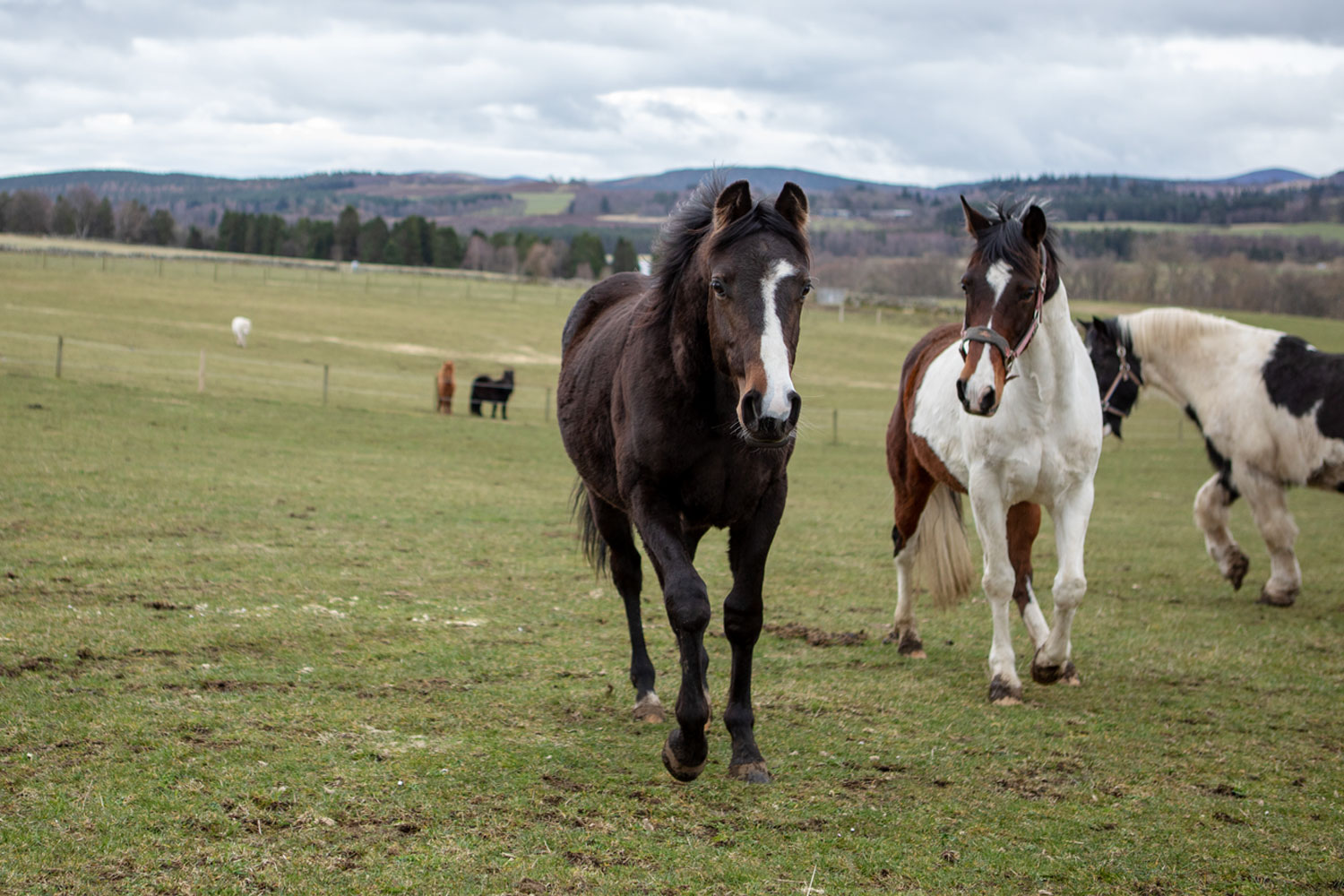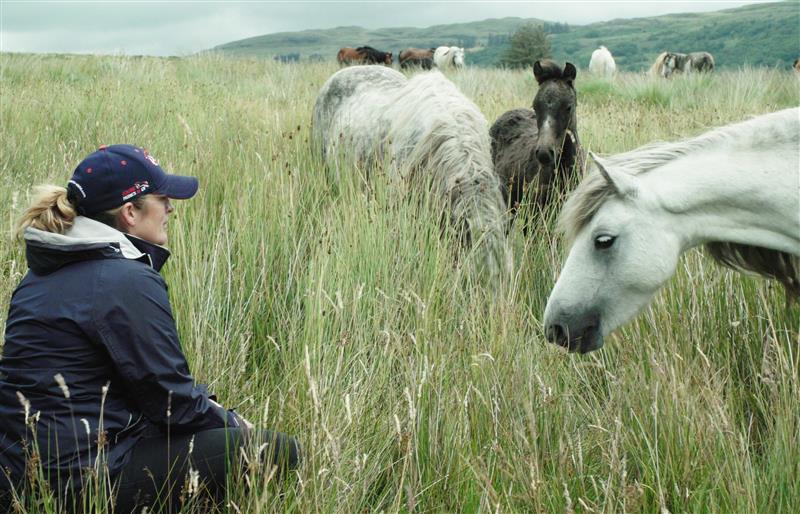As horse owners, riders and keepers, it is our duty to provide the horses in our care with a species-appropriate life centred around their three essential needs: friends, forage, and freedom.
Horses are highly social prey animals and, as such, socialisation with other horses is a vital part of their day-to-day life. Ideally, horses should be turned out as part of a herd as it helps them feel safe and build social bonds through behaviours such as mutual grooming, playing and having fun, and resting with one another. If this is not possible, then walking out in hand with at least one other horse is an option, along with making sure that horses are able to see other horses when turned out or in the stable. However, providing opportunities for physical contact is also important for horses’ welfare and mental well-being.
Horses are predominantly grazers and should be fed a forage-based diet. Forage can include grass, hay and haylage as well as chaffs and grass replacers. Forage is vital for digestive health: horses are hindgut fermenters and require cellulose in their diet for the bacteria in the caecum to break down to help provide energy. Forage is important for gut fill, as a suitably full gastrointestinal tract can help reduce incidences of colic and gastric ulcers. Forage also prolongs eating time, which is important for horses’ mental well-being as they have a behavioural need to spend most of the day eating. Horses that don’t have their behavioural needs met because they are fed a low forage, high sugar and starch diet are more likely to display unwanted behaviours. Alongside forage, most horses will need to be provided with additional vitamins and minerals in some form to ensure they are receiving the correct amounts of micronutrients. Where possible, try to make presentation of forage fun and interesting to make foraging an enrichment activity.
Freedom of movement is important for horses’ physical and mental well-being. Horses evolved to live on large home ranges and will move 10–20 km per day when given the opportunity. Although this is more challenging within most domestic environments, there are many ways to provide your horse with opportunities to move. Herd turnout in varied terrain is the best option, but any turnout will be beneficial, as will loose schooling. Riding and groundwork also encourage movement, but this is not normally within the horse’s control.
‘Freedom’ doesn’t just mean freedom to move – it also means freedom of choice. This is an important element of maintaining equine welfare and well-being. Choice can be incorporated into your horse’s life through offering different forage options and presenting forage in different ways (e.g., hay nets, hay boxes and loose). Different surfaces and areas can also be provided whilst turned out to incorporate choice. Being turned out in a group of horses also provides some element of choice in how they chose to free exercise, who they spend the majority of their time with, which other horse(s) they might play with, who they might mutually groom, rest alongside, etc.
Where possible, try and incorporate the elements of the 3Fs into your horse’s daily management to meet their fundamental needs. It’s time to get creative with your enrichment methods and have fun with your horse!
The 3Fs were developed by equine behaviourist, Lauren Fraser. You can find more information on Lauren’s work and the 3Fs here.
For more information on the 3Fs why not check out the What are the 3Fs for horses? episode in our video series, Horses Explained.
Popular advice in Well-being essentials

The 5 Domains of animal welfare
Find out how you can meet the species specific needs of your horse using the 5 Domains of animal welfare

Horse health essentials
Check out our essential top 10 health considerations to keep your horse happy and healthy
Other advice categories
All webinar categories:
Call our Advice Line
+44 (0)1953 497 238Not found the advice or answer you were looking for here? Then our Advice Line is available during office hours, or you can email us on education@worldhorsewelfare.org to let us know what topics you were looking for.





